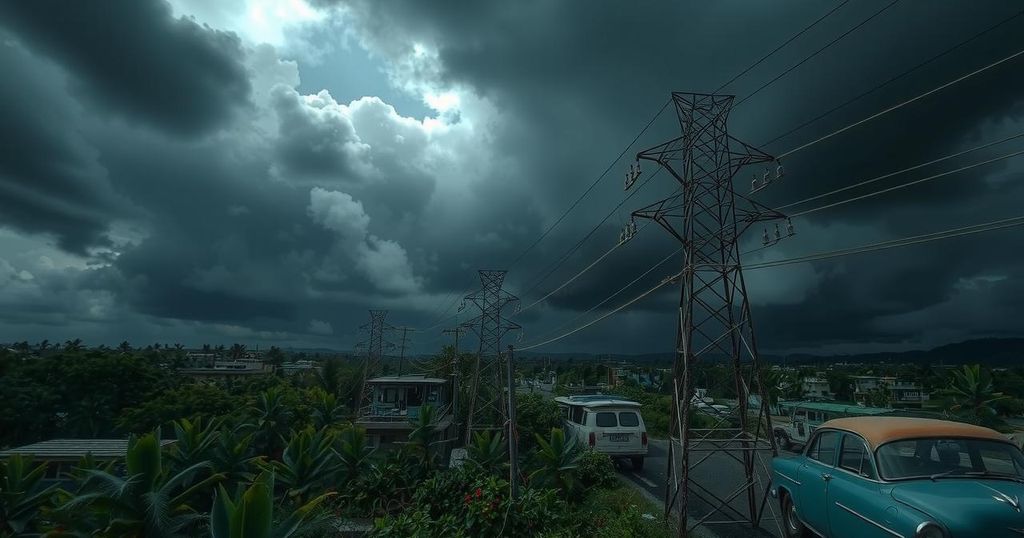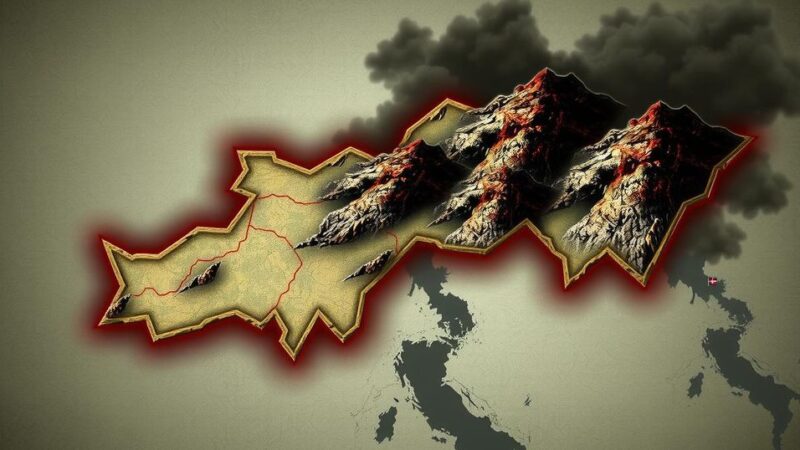Cuba is experiencing its third consecutive day without electricity as recovery efforts are thwarted by failures in the aging electrical infrastructure. Hurricane Oscar is expected to make landfall, complicating efforts to restore power. With essential services affected, many citizens are expressing frustration over the situation amid ongoing blackouts and limited resources.
As of Sunday, millions of Cubans are entering the third consecutive day without electricity due to a series of failures within the aging electrical infrastructure. Despite efforts by the Cuban Electrical Union to restore power, only approximately 16% of the nation had their electricity restored before the grid collapsed again late Saturday night. Officials have not provided information on when electricity services will resume. This latest situation represents a significant challenge, compounded by the impending arrival of Hurricane Oscar. Expected to bring strong winds and dangerous surf conditions, the hurricane made initial landfall on Inagua Island in the Bahamas, recording maximum sustained winds of 80 mph, as per the National Hurricane Center’s update. Predictions indicate that Hurricane Oscar will reach the northeastern coast of Cuba later today, potentially weakening but still posing a risk when it moves north of the island and toward the Bahamas on Tuesday. The initial nationwide blackout occurred on Friday following the failure of a major power plant, and the situation deteriorated further with another blackout on Saturday morning. These extensive power outages threaten to exacerbate the current crisis in Cuba, affecting essential services such as water supply and food preservation. In the capital city of Havana, residents faced long wait times to purchase limited supplies of bread, leading to frustration and disputes over who was served first. The power outages have led to resourcefulness among individuals, with some utilizing social media to share information on which areas had power and others coordinating to store medications. Despite the ongoing hardships, tourists are still present, although hotel generators are running low on fuel, leaving many amenities unpowered. Havana’s José Martí International Airport is reportedly operational only under emergency power conditions, complicating travel processes such as ticket issuance and air conditioning. There have been reports of small protests stemming from public discontent regarding the blackout situation. Cuban officials have attributed the energy crisis to various factors, including increased U.S. economic sanctions, hurricane-related disruptions, and the existing impoverished infrastructure on the island. Prime Minister Manuel Marrero Cruz acknowledged the gravity of the situation in a televised address, stating, “We have been paralyzing economic activity to generate (power) to the population.” Concurrently, Health Minister José Angel Portal Miranda assured that health facilities are relying on generators to maintain essential services during this crisis.
The current energy crisis in Cuba has been exacerbated by a combination of outdated infrastructure, governmental mismanagement, and external pressures such as economic sanctions. The country’s electrical grid has faced repeated failures, leading to nationwide blackouts, which severely impact daily life and essential services. The arrival of Hurricane Oscar has intensified these issues as recovery efforts are hampered by severe weather conditions. The socioeconomic situation in Cuba has also been strained due to the lack of reliable power, which is critical for both public health and food storage.
In conclusion, Cuba is facing a dire situation marked by widespread power outages that have persisted for multiple days as Hurricane Oscar approaches the island. The failures of the electrical grid, coupled with socio-economic challenges and external sanctions, have led to significant public discontent. With essential services at risk, officials continue to search for solutions while managing the immediate impacts of the impending hurricane.
Original Source: www.cnn.com






